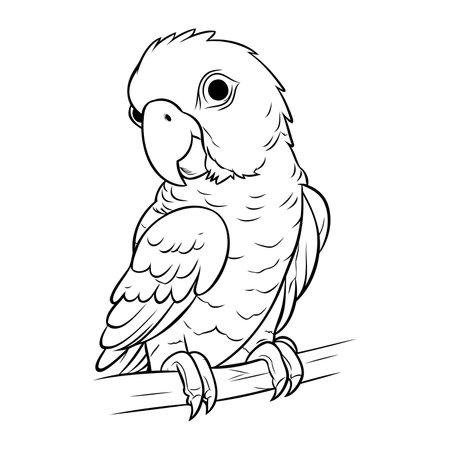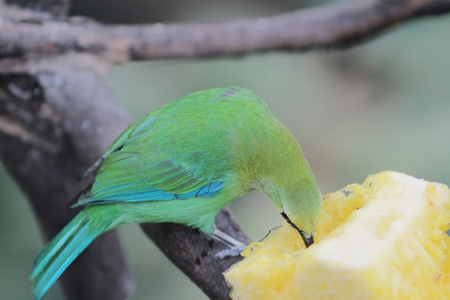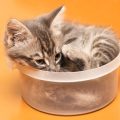1. Understanding Avian Nutritional Needs
When it comes to keeping your parrot or other pet bird happy and healthy, understanding their nutritional needs is key. Birds have unique dietary requirements that differ from those of mammals, and even among birds, there are important differences between species. Let’s break down the basics of avian nutrition and why a balanced diet matters so much for your feathered friends.
The Basics of Avian Nutrition
Birds need a mix of nutrients just like we do: proteins, carbohydrates, fats, vitamins, minerals, and water. Each plays a specific role in supporting your bird’s health, energy levels, and even their vibrant feather colors. Here’s a quick overview:
| Nutrient | Main Function | Common Sources |
|---|---|---|
| Protein | Supports muscle growth and tissue repair | Seeds, pellets, legumes, eggs (in moderation) |
| Carbohydrates | Provides energy | Fruits, grains, vegetables |
| Fats | Essential for healthy skin and feathers; energy source | Nuts, seeds (should be limited), some pellets |
| Vitamins & Minerals | Boost immune system, bone health, and overall well-being | Leafy greens, fruits, fortified pellets |
| Water | Keeps organs functioning and aids digestion | Fresh, clean water daily |
Differences Between Bird Species
No two bird species are exactly alike when it comes to their ideal diet. For example:
- Parrots (like African Greys or Amazons): Need a varied diet including high-quality pellets, fresh fruits and veggies, plus limited seeds or nuts.
- Finches and Canaries: Thrive on small seeds with occasional greens or egg food for extra protein.
- Cockatiels: Enjoy millet sprays but also need veggies and pellets for balance.
- Doves or Pigeons: Prefer grains and seeds but still benefit from some greens.
This table highlights some common pet birds and their main dietary preferences:
| Bird Species | Main Diet Components | Treats/Extras (in moderation) |
|---|---|---|
| Parrot (Macaw, Amazon) | Pellets (60-70%), Fresh produce (20-30%), Limited seeds/nuts (5-10%) | Nuts, cooked eggs, whole grain bread crumbs |
| Cockatiel/Budgie | Pelllets (50-60%), Seeds (20-30%), Fresh veggies/fruits (15-20%) | Sliced apples (no seeds), millet spray |
| Finch/Canary | Seed mix (70-80%), Greens/veggies (10-20%) | Cooked egg mash, sprouted seeds |
| Dove/Pigeon | Grains/seeds (70-80%), Greens/veggies (10-20%) | Berries, chopped apple (no seeds) |
The Importance of a Well-Rounded Diet Tailored to Your Birds Needs
A one-size-fits-all approach doesn’t work for pet birds. Feeding only seeds or sticking to just one type of food can lead to serious health issues like obesity, vitamin deficiencies, or poor feather condition. Instead, aim to offer a balanced menu that meets your bird’s specific needs based on their species, age, activity level, and any health conditions they may have. This not only supports their physical health but also keeps them mentally stimulated with new flavors and textures to explore.
Your Role as a Bird Owner
The best way to ensure your feathered companion thrives is by learning about their individual nutritional needs and offering variety every day. Always introduce new foods gradually and consult an avian veterinarian if you’re unsure what’s best for your pet bird.
2. Fresh Foods: Fruits, Vegetables, and Greens
Why Fresh Foods Matter for Pet Birds
Fresh fruits, vegetables, and leafy greens are essential parts of a balanced diet for parrots and other pet birds. These foods provide important vitamins, minerals, antioxidants, and hydration that pellets and seeds alone can’t offer. Adding a variety of colorful fresh foods also helps prevent boredom and encourages natural foraging behavior.
Safe and Nutritious Choices
Not all fruits and veggies are safe for birds, so it’s important to know which ones to include in their meals. Here is a simple guide:
| Category | Safe Options | Tips & Benefits |
|---|---|---|
| Fruits | Apples (no seeds), bananas, berries (strawberries, blueberries), melons, oranges, mango, papaya, pears (no seeds), grapes | Offer small pieces; rich in vitamins A & C; always remove seeds/pits from apples, pears, cherries, peaches as they can be toxic. |
| Vegetables | Carrots, sweet potatoes (cooked), bell peppers, broccoli, squash, peas, green beans, zucchini, corn (fresh or cooked) | Serve raw or lightly steamed; high in fiber and vitamin A; avoid onions and garlic. |
| Leafy Greens | Kale, romaine lettuce, spinach (small amounts), Swiss chard, dandelion greens, collard greens, arugula | Rinse thoroughly; rotate types to avoid overfeeding oxalates found in spinach/chard. |
Foods to Avoid
- Avocado – toxic to birds
- Onions and garlic – can cause digestive issues
- Mushrooms – some varieties are unsafe
- Fruit pits/seeds from apples, cherries, peaches – contain cyanide compounds
- Caffeinated or alcoholic foods/beverages – never safe for birds
How to Prepare Fresh Foods for Your Bird
- Wash thoroughly: Always rinse fruits and veggies under running water to remove pesticides or dirt.
- Cut into bite-sized pieces: Small chunks make it easier for your bird to handle and eat safely.
- No added salt or sugar: Keep it natural—don’t add dressings or seasonings.
- Introduce new foods slowly: Birds can be cautious about new textures or flavors. Offer one new food at a time alongside familiar favorites.
- Remove uneaten food after 2-4 hours: Fresh foods can spoil quickly at room temperature.
Portion Sizes: How Much Is Enough?
A good rule of thumb is that fresh foods should make up about 20-25% of your bird’s daily diet. For small birds like budgies or cockatiels, one to two tablespoons per day is enough. Larger parrots may enjoy up to ½ cup of mixed fresh produce daily. Adjust portions based on your bird’s size and appetite.
Sample Daily Serving Table by Bird Size:
| Bird Size | Total Fresh Food Per Day |
|---|---|
| Tiny (Budgie/Parakeet) | 1-2 tbsp |
| Small-Medium (Cockatiel/Conure) | 2-4 tbsp |
| Large (Amazon/African Grey/Macaw) | ¼-½ cup (4-8 tbsp) |
The key is variety—mix up the choices each week so your bird gets a rainbow of nutrients!

3. Pellets, Seeds, and Commercial Diets
The Importance of High-Quality Pellets
Pellets are often considered the foundation of a balanced diet for parrots and many other pet birds in the U.S. These specially formulated foods are designed to provide all the essential nutrients your bird needs, including vitamins, minerals, protein, and healthy fats. Unlike seeds, pellets prevent picky eating because each bite contains a consistent mix of nutrients. When choosing pellets, look for reputable brands that use natural ingredients and avoid artificial colors or flavors. Your avian vet can also recommend trusted products suitable for your bird’s specific species and age.
Why Seed-Based Diets Alone Aren’t Enough
While birds love seeds, feeding only seeds can lead to serious health problems over time. Seed-based diets are high in fat but low in key nutrients like vitamin A, calcium, and certain amino acids. Birds on all-seed diets often develop obesity, liver disease, and vitamin deficiencies. To help you see the difference, here’s a quick comparison:
| Pellet-Based Diet | Seed-Based Diet | |
|---|---|---|
| Nutritional Balance | Consistent & complete | Imbalanced (high fat, low nutrients) |
| Picky Eating | Less likely | Very common |
| Health Risks | Lower if properly chosen | Obesity, vitamin deficiencies |
| Convenience | Easy to use daily | Needs careful supplementation |
Selecting Quality Commercial Products for Your Bird
The pet store aisle is packed with options—but not all commercial bird foods are created equal. Here’s how to choose the best for your feathered friend:
- Check Ingredients: Look for whole grains, vegetables, and fruits at the top of the list. Avoid products with lots of fillers or artificial additives.
- Avoid Sugary or Colorful Mixes: Brightly colored foods may look fun but often contain dyes and added sugars that aren’t healthy for birds.
- Species-Specific Formulas: Some commercial diets are tailored for parrots, cockatiels, finches, or other types of birds. Pick one suited to your pet’s needs.
- Consult Your Avian Vet: Before switching diets or trying a new product, ask your veterinarian for recommendations based on your bird’s health and lifestyle.
- Mix It Up: Even with high-quality pellets or mixes, always offer fresh veggies and a little fruit each day for variety and enrichment.
A balanced approach using mostly pellets—with some seeds as treats—plus fresh produce is generally best for most pet birds in American homes.
4. Supplements and Treats: When and What to Offer
Supplements and treats can play a helpful role in your bird’s diet, but using them correctly is key to keeping your feathered friend healthy. Many pet birds get most of their nutrition from a well-balanced commercial pellet or seed mix, fresh fruits, and vegetables. However, some birds may need extra vitamins or minerals, especially if their primary diet is mostly seeds.
When to Use Vitamin and Mineral Supplements
Vitamin and mineral supplements should only be given when necessary—too much of certain nutrients can actually harm your bird. Always talk to an avian veterinarian before starting any supplement. Here are some common situations where supplements might be needed:
- All-seed diets: Birds eating mostly seeds often lack vitamin A, calcium, and other essential nutrients.
- Special needs: Breeding birds, growing chicks, or sick birds may need extra support.
- Limited fresh foods: If your bird doesn’t eat a variety of fruits and veggies, supplementation could help fill nutritional gaps.
Common Bird Supplements
| Supplement Type | Purpose | How to Use |
|---|---|---|
| Calcium Blocks/Cuttlebone | Supports bone health, especially for egg-laying females | Provide in cage for self-regulation; replace as needed |
| Vitamin Drops (in water or food) | Adds essential vitamins like A, D3, E, K, B-complex | Add only as directed by a vet; watch water intake closely |
| Iodine Blocks | Prevents iodine deficiency in species like budgies | Offer occasionally if recommended by a vet |
| Amino Acid Supplements | Supports feather growth during molt or recovery | Use short-term under veterinary guidance |
Healthy Treats for Parrots and Other Pet Birds
Treats are great for training, bonding, or adding variety—but they should make up less than 10% of your bird’s daily intake to avoid disrupting the overall nutritional balance. The best treats are natural and low in sugar and fat.
Bird-Friendly Treat Ideas
- Fresh Fruit: Apple slices (no seeds), berries, grapes (cut up), bananas—served in moderation due to sugar content.
- Veggie Snacks: Carrot sticks, snap peas, broccoli florets—raw or lightly steamed.
- Nuts & Seeds: Unsalted almonds or sunflower seeds—only a few at a time as they are high in fat.
- Baked Birdie Biscuits: Homemade with whole grains and no added sugar or salt.
- Dried Fruits: Unsweetened dried papaya or mango chunks—use sparingly.
Treats to Avoid
- Sugary cereals or processed human snacks (chips, cookies)
- Caffeinated foods/drinks (chocolate, coffee)
- Savory foods high in salt (pretzels, salted nuts)
- Dairy products (birds cannot digest lactose well)
- Avocado (toxic to birds)
The right use of supplements and treats supports your bird’s health without unbalancing their carefully planned diet. Always monitor new foods for allergic reactions or digestive upset and consult with an avian vet when making any significant dietary changes.
5. Safe Foods vs. Foods to Avoid
When planning a balanced diet for your parrot or other pet birds, knowing which foods are safe and which should be avoided is crucial. Some common household foods can be toxic or pose serious health risks to birds, even in small amounts. Let’s break down the foods you can safely offer and those that must stay off your bird’s menu.
Common Foods That Are Unsafe for Birds
| Food | Reason to Avoid | Possible Effects |
|---|---|---|
| Avocado | Contains persin, which is toxic to birds | Heart damage, respiratory distress, death |
| Chocolate | Theobromine and caffeine content is toxic | Vomiting, seizures, heart problems, death |
| Caffeine (coffee, tea, soda) | Highly stimulating and toxic to birds’ systems | Hyperactivity, arrhythmia, cardiac arrest |
| Alcohol | Toxic even in very small amounts | Liver damage, disorientation, death |
| Onion & Garlic (raw or cooked) | Can cause digestive upset and anemia | Weakness, vomiting, potentially fatal anemia |
| Salted Foods & Junk Food (chips, crackers) | Sodium overload is dangerous for birds’ kidneys | Dehydration, kidney failure, death |
| Xylitol (sugar substitute) | Toxic to many animals including birds | Liver failure, hypoglycemia, seizures |
| Dairy Products (milk, cheese) | Birds lack enzymes to digest lactose properly | Digestive upset, diarrhea |
| Fruit Pits & Apple Seeds (cherry, peach) | Contain cyanide compounds that are toxic if chewed/eaten in quantity | Poisons nervous system; risk of death with large amounts |
| Moldy or Spoiled Foods | Molds produce toxins harmful to birds’ sensitive systems | Liver damage, neurological issues, death |
Safe Treats and Table Foods for Birds (In Moderation!)
- Fresh fruits: Apples (seedless), bananas, berries, melons, grapes, oranges (small amounts), mangoes
- Fresh vegetables: Carrots, broccoli florets, peas, green beans, leafy greens (avoid iceberg lettuce)
- Whole grains: Cooked brown rice, whole wheat pasta (plain), oats
- Nuts and seeds: Unsalted and unflavored only; offer sparingly due to high fat content
- Cooked eggs: Plain scrambled or hard-boiled as a protein treat
- Cooked legumes: Lentils or beans (fully cooked and unsalted)
- Pasta sauce/toppings: Only plain tomato sauce without onions/garlic/spices
- Bread: Whole grain bread in small pieces; avoid processed white bread
- Herbs: Parsley or cilantro in small amounts
- Pumpkin or squash: Cooked and unseasoned
- Corn on the cob: Fresh or cooked plain corn kernels
- Smooth nut butters: Peanut or almond butter (unsweetened and unsalted; tiny quantities)
How to Keep Your Bird Safe from Household Food Hazards
- Avoid sharing your snacks: Even if your bird begs for a taste of what you’re eating, always double-check ingredients.
- No food from nonstick cookware: Overheated nonstick pans release fumes that are deadly to birds.
- No leftover party food: Chips, dips, pizza toppings often contain salt or spices harmful to your bird.
- Secure trash cans: Curious parrots may rummage through garbage—keep it covered!
- No open access during meal prep: Prevent accidental ingestion of unsafe scraps while cooking.
- No feeding from your mouth: Human saliva contains bacteria that can make birds sick.
If You Suspect Poisoning…
If your bird accidentally eats something dangerous or shows signs like vomiting, trouble breathing, weakness or seizures—call an avian vet immediately.
A little extra care goes a long way in keeping your feathered friend safe and healthy! Always introduce new foods gradually and consult with an avian veterinarian about any concerns regarding your bird’s diet.
6. Building a Feeding Routine
Why a Consistent Feeding Schedule Matters
Creating a regular feeding routine is key to keeping your parrot or pet bird healthy and happy. Birds thrive on consistency—it helps them feel secure and also prevents overeating or under-eating. Just like us, they appreciate knowing when their next meal is coming!
How to Set Up a Daily Feeding Schedule
| Time of Day | Feeding Activity |
|---|---|
| Morning (7-9 AM) | Offer fresh pellets, seeds, and a mix of fruits or veggies |
| Afternoon (12-2 PM) | Provide a small snack (fresh greens or fruit) |
| Evening (5-7 PM) | Remove uneaten food, offer clean water, and give a light treat if desired |
This schedule can be adjusted based on your bird’s species and daily routine, but keeping mealtimes consistent is important.
Monitoring Your Bird’s Weight and Health
Regular weight checks are one of the easiest ways to monitor your bird’s health. Use a small digital scale designed for birds. Weigh your feathered friend at the same time each week—first thing in the morning works best before breakfast. Keep a simple record so you can spot any changes early.
| Date | Weight (grams) | Notes/Observations |
|---|---|---|
| 06/10/2024 | 320g | Active and eating well |
| 06/17/2024 | 322g | No changes noticed |
| 06/24/2024 | 318g | Slightly less active, watching closely |
If you notice sudden weight loss or gain, reach out to an avian vet right away.
Making Gradual Dietary Changes for Best Results
If you need to update your bird’s diet—maybe adding more veggies or switching pellet brands—do it slowly. Birds can be picky eaters and are sensitive to sudden changes. Here’s how to do it:
- Start Small: Mix just a small amount of the new food with their current diet.
- Increase Gradually: Over 1-2 weeks, slowly increase the new food while decreasing the old.
- Observe Closely: Watch for changes in appetite, droppings, or behavior.
- Praise & Encourage: Use gentle encouragement and positive reinforcement when your bird tries something new.
This gentle approach helps prevent digestive upset and encourages your bird to accept healthier foods long-term.

